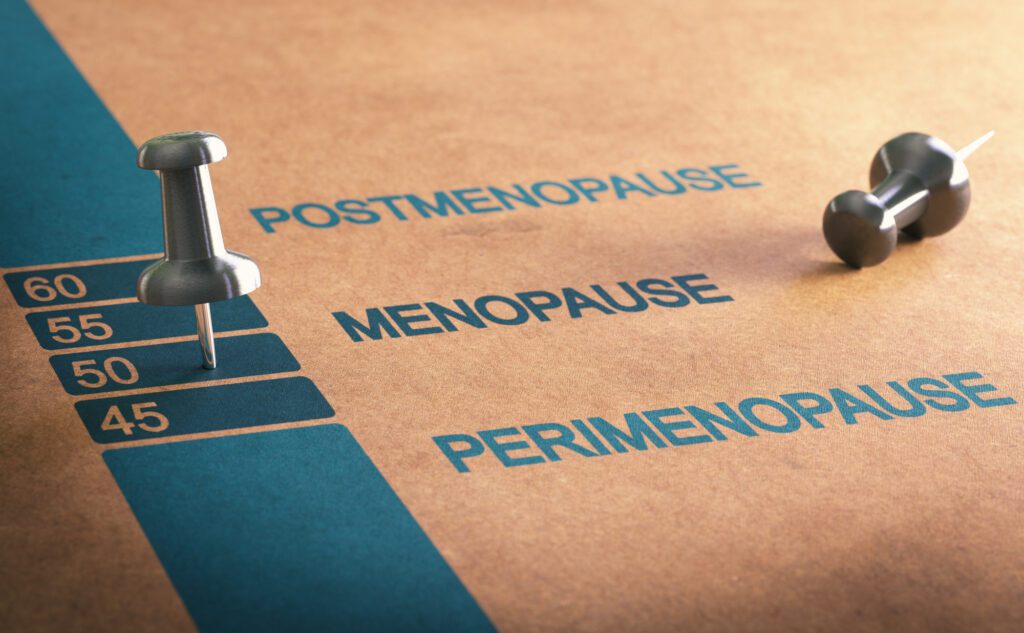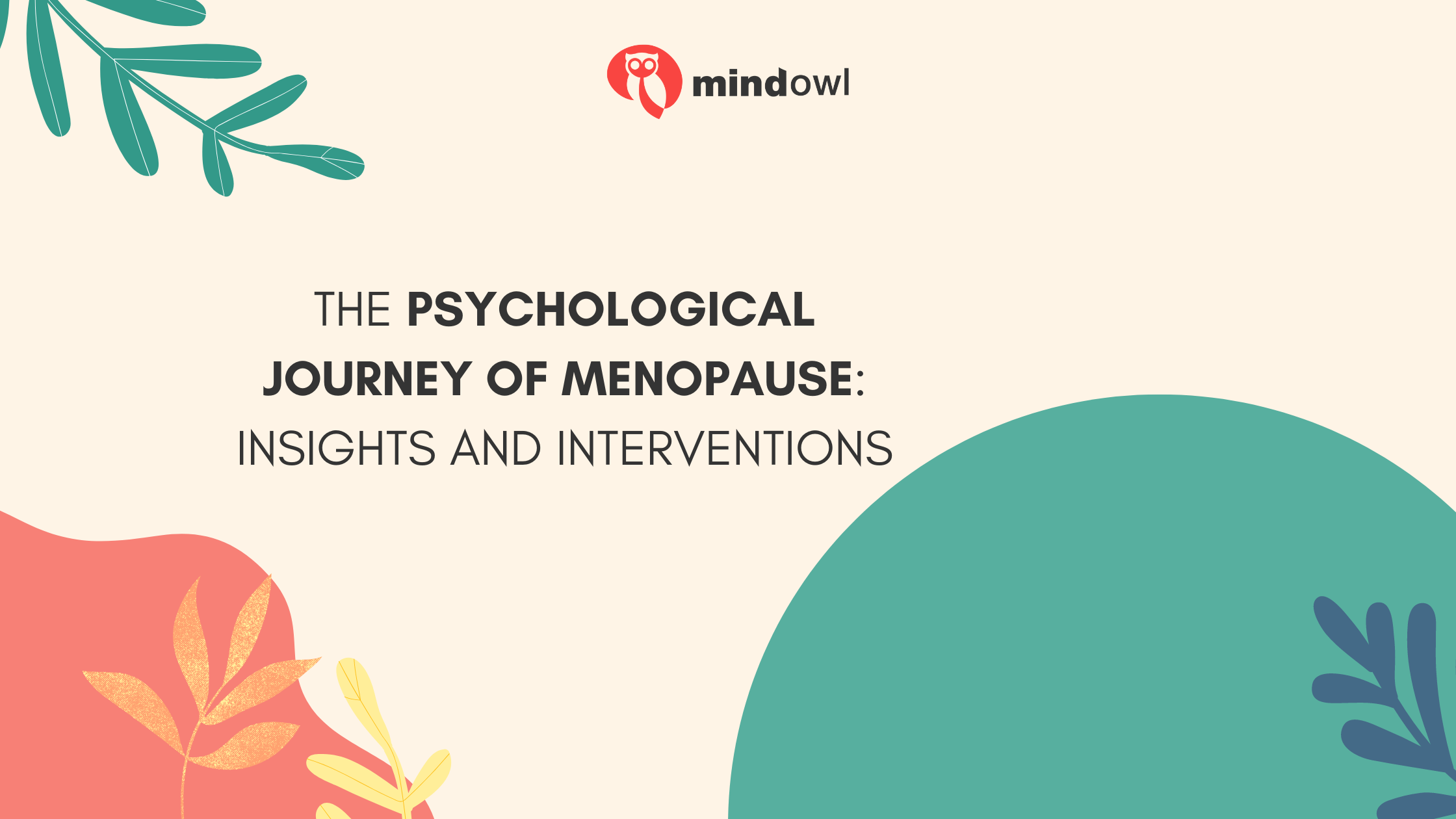Negative perceptions and a lack of understanding have historically influenced public opinion on menopause. Menopause was often portrayed as a period of decline and loss. This perspective was fueled by medical literature and societal attitudes that emphasized the physical and psychological challenges associated with menopause, sometimes even describing it as a disease that needed treatment as opposed to being a natural part of female reproductive development. For these reasons, many women expected the worst from their menopausal transition.
As society has evolved into what it is at present, the narrative has begun to change, with growing public conversations around menopause helping to shatter long-standing taboos. For one, high-profile women and celebrities have been increasingly vocal about their experiences, contributing to a broader awareness and more open discussion about menopause.
This article focuses on the psychological landscape of menopause, highlighting the crucial phase of perimenopause, and offers insights into effective interventions to support mental well-being during this transformative period. Continue reading to learn more.

Understanding menopause
Menopause is a natural part of a woman’s ageing process, typically divided into three stages: perimenopause, menopause, and post-menopause. These stages mark the transition from the reproductive years to the non-reproductive phase of a woman’s life.
Perimenopause
Perimenopause, also known as the menopausal transition, begins several years before menopause. During this stage, the ovaries gradually produce less estrogen. It usually starts in a woman’s 40s but can start in the 30s as well. Perimenopause lasts until menopause, the point when the ovaries stop releasing eggs.
In the last one to two years of perimenopause, the drop in estrogen accelerates. Many women experience menopause symptoms during this time, such as:
- Irregular periods
- Hot flashes
- Sleep problems
- Mood changes
- Vaginal and bladder problems
- Decreasing fertility
- Changes in sexual function
- Loss of bone
- Changing cholesterol levels
Menopause
Menopause is the point in time when it’s been 12 months since a woman had her last menstrual period. At this stage, the ovaries have stopped releasing eggs and producing most estrogen. Menopause marks the end of the reproductive years.
Post-menopause
Post-menopause refers to the years after menopause. During this stage, menopausal symptoms, such as hot flashes, can ease for many women. However, health risks related to the loss of estrogen increase as the woman ages. Postmenopausal women are at a higher risk for several conditions, including osteoporosis and heart disease. Monitoring and managing health is crucial during this stage, focusing on maintaining a healthy lifestyle and getting regular check-ups to mitigate these risks.
Understanding these stages can help in recognizing and managing symptoms and in making informed decisions about treatments to alleviate symptoms and manage health risks associated with the menopausal transition.

Why does mental health decline occur during perimenopause?
Perimenopause, the precursor to menopause, marks the beginning of this life-changing transition, potentially ushering in a spectrum of mental health concerns. This phase can span several years, during which women may experience erratic menstrual cycles, hot flashes, sleep disturbances, and a host of other physical symptoms.
Crucially, it’s also a time when many women report increased anxiety, depression, and mood swings. Addressing mental health concerns during perimenopause is, therefore, paramount to mitigate the impact on women’s quality of life.
The psychological implications during perimenopause are multifaceted. Fluctuating estrogen levels are believed to affect brain chemistry, influencing mood and emotional well-being. Moreover, this stage often coincides with significant life events such as parents’ ageing, changes in marital relationships, and the transition of children leaving home, compounding the stress and emotional upheaval.
Recognizing the Symptoms
The transition into menopause can significantly impact mental health for some women. Fluctuations in hormone levels, particularly estrogen and progesterone, can influence mood and overall mental well-being. Symptoms of mental health decline during menopause may include:
- Mood swings: Women may experience rapid mood changes, such as feeling joyful one moment and sad the next, without an apparent reason for these shifts.
- Depression: A persistent feeling of sadness, loss of interest in previously enjoyed activities, feelings of worthlessness, or unexplained fatigue could indicate depression.
- Anxiety: Increased feelings of nervousness, worry, or fear about everyday situations may be more pronounced during menopause.
- Irritability: Many women report feeling more irritable or having a shorter temper than usual during the menopausal transition.
- Stress: The physical and emotional changes associated with menopause can also lead to increased stress levels.
- Sleep problems: Difficulty falling, staying, or experiencing restful sleep can contribute to mental health issues. Night sweats and hot flashes can further disrupt sleep, exacerbating feelings of anxiety or depression.
- Cognitive changes: Some women may notice difficulties with memory, concentration, or mental processing speed during menopause, affecting their well-being and productivity.
- Decreased libido: Changes in sexual desire and satisfaction can impact self-esteem and intimate relationships, potentially leading to feelings of sadness or inadequacy.
- Lack of energy: Chronic fatigue and a lack of physical energy can make it challenging to manage daily tasks and enjoy life, contributing to feelings of depression or anxiety.
These symptoms can be challenging, but it’s essential to recognize that they are a normal part of the transition for some women. Effective management strategies include lifestyle changes (such as regular physical activity, healthy eating, and good sleep hygiene), psychological therapies (like cognitive-behavioural therapy or counselling), and, in some cases, medication (such as antidepressants or hormone replacement therapy).
If you’re experiencing symptoms of mental health decline during menopause, reaching out to a healthcare provider for support and treatment options is crucial. They can help you navigate this transition more comfortably and maintain your mental health.

Addressing the psychological impact of menopause: Interventions and coping strategies
Supporting women experiencing mental health declines due to menopause involves a combination of medical interventions, lifestyle adjustments, and psychological support. Tailoring the approach to everyone’s experiences and symptoms is crucial. Here are some effective interventions and support strategies:
Medical interventions
Medical interventions for women experiencing psychological symptoms due to menopause primarily aim to alleviate these symptoms by addressing the underlying hormonal fluctuations and their impact on mental health. Here are some of the main approaches:
- Hormone Replacement Therapy (HRT): HRT involves supplementing the body’s estrogen and, in some cases, progesterone levels to mitigate the symptoms of menopause, including mood swings, anxiety, and depression. By stabilizing hormone levels, HRT can help improve mood and overall well-being.
- Antidepressants: Selective Serotonin Reuptake Inhibitors (SSRIs) and Serotonin-Norepinephrine Reuptake Inhibitors (SNRIs) are classes of antidepressants that can be effective in treating menopause-related depression and anxiety. They can also help alleviate hot flashes, which in turn can improve sleep and reduce stress.
- Anti-anxiety medications: For women experiencing heightened levels of anxiety during menopause, anti-anxiety medications may be prescribed. These can help manage acute anxiety symptoms but are generally recommended for short-term use due to the risk of dependence.
Consulting with healthcare professionals, including gynecologists, psychiatrists, and psychologists, can help tailor the treatment to the patient’s needs, ensuring the best possible management of psychological symptoms during menopause.
Lifestyle adjustments
Lifestyle adjustments are crucial for managing menopause-related psychological symptoms. Regular exercise, a healthy diet, good sleep hygiene, stress management techniques (such as yoga, meditation, or deep breathing exercises), and avoiding triggers (like caffeine and alcohol) can significantly improve mental health.
Psychological support
Psychological support for women experiencing mental health issues during menopause can significantly benefit from counselling or therapy, such as Cognitive Behavioral Therapy (CBT). CBT helps in identifying and changing negative thought patterns and behaviours, providing strategies to manage symptoms like mood swings, anxiety, and depression. Support groups specifically for menopausal women can also offer a sense of community and understanding, allowing women to share experiences and coping strategies.
Additionally, mindfulness-based stress reduction (MBSR) techniques, including meditation and yoga, can be effective in reducing stress and improving mental well-being during menopause. Lifestyle modifications, such as regular physical activity, a balanced diet, and adequate sleep, support cognitive health. Engaging in activities that promote relaxation and personal fulfilment can also contribute to emotional and psychological resilience during this transition.
Social support
Social support plays a vital role in helping women navigate the mental health challenges associated with menopause. Strong networks of friends, family, and peers can provide emotional support, understanding, and practical help. Sharing experiences and feelings with those who understand or are going through similar changes can significantly alleviate isolation and stress. Engaging in community groups, whether in person or online, that focus on women’s health and menopause can also offer valuable insights and coping strategies.
Professional support groups facilitated by healthcare providers or counsellors specializing in menopause can provide both education and emotional support. These groups often address common symptoms, treatment options, and ways to handle psychological changes, offering a structured and empathetic space for discussion. Additionally, couples’ therapy or family counselling can help address relationship dynamics affected by the menopausal transition, ensuring that partners and family members understand the changes occurring and how they can offer support.
It’s vital for women experiencing mental health issues during menopause to reach out to healthcare providers to discuss their symptoms and explore the most appropriate treatment options. Tailored support can significantly improve the quality of life during this transitional period.
Final thoughts
The psychological journey of menopause is unique for every woman. It encompasses challenges but also opportunities for growth and renewal. By recognizing the impact of this transition on mental health and employing effective interventions, women can navigate this period with resilience and support. The key lies in acknowledging the struggle, seeking help when needed, and embracing change as a natural part of life’s cycle.
As society progresses, the dialogue surrounding menopause and mental health is becoming increasingly open and informed. This shift towards greater awareness and support can significantly improve the menopausal experience, ensuring women aren’t left to suffer through this transition in silence. Still, with the understanding and care they deserve.
MindOwl Founder – My own struggles in life have led me to this path of understanding the human condition. I graduated with a bachelor’s degree in philosophy before completing a master’s degree in psychology at Regent’s University London. I then completed a postgraduate diploma in philosophical counselling before being trained in ACT (Acceptance and commitment therapy).
I’ve spent the last eight years studying the encounter of meditative practices with modern psychology.

